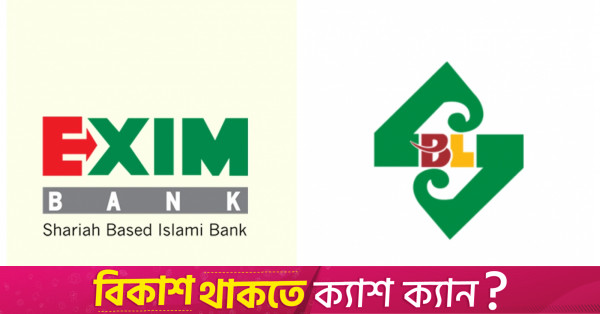BB reduces bond sizes for Exim Bank, Standard Bank


The two banks communicated the central bank’s actions to their investors by releasing disclosures through the Dhaka Stock Exchange (DSE)
Logos of Exim Bank and Standard Bank. Photos: Collected
“>
Logos of Exim Bank and Standard Bank. Photos: Collected
The Bangladesh Bank (BB) has reduced the bond sizes for the Exim Bank and Standard Bank by scrutinising their capital requirements.
The two banks communicated the central bank’s actions to their investors by releasing disclosures through the Dhaka Stock Exchange (DSE).
In their disclosures, Exim Bank stated that it was seeking a no objection certificate (NOC) from the central bank to raise Tk300 crore by issuing a subordinated bond with a seven-year term to meet the Tier 2 capital requirements under BASEL III.
However, while processing the NOC request, Bangladesh Bank reduced the bond size by Tk50 crore and issued the certificate for the revised amount.
Additionally, Standard Bank was seeking an NOC to raise Tk1,000 crore for the same purpose. However, the central bank issued the certificate for Tk350 crore.
Exim Bank’s Managing Director Feroz Hossain, Standard Bank’s Chief Financial Officer MA Reza, and Company Secretary Ali Reza did not answer calls placed to their mobile phones for comments. Additionally, they did not respond to messages sent via WhatsApp.
A Bangladesh Bank official said while the Bangladesh Securities and Exchange Commission (BSEC) serves as the primary regulator for bond approvals, banks must first secure a no-objection certificate (NOC) from the central bank.
When a bank applies for an NOC, the central bank assesses the purpose of the bond issuance. If the bond is intended to fulfill capital requirements, Bangladesh Bank verifies the required amount of capital and issues the NOC for that specific sum, he added.
Additionally, the central bank reviews the bond’s interest rate. If the proposed rate significantly exceeds the market rate, Bangladesh Bank will require the issuing bank to revise it, ensuring that the rate aligns with prevailing market conditions, the official also said.
He also mentioned that if a bank raises additional funds through bonds, the liability for those funds falls on the bank and the Bangladesh Securities and Exchange Commission (BSEC), not the Bangladesh Bank. The central bank’s role is limited to reviewing and reporting on the funds issued under the No Objection Certificate (NOC).
Earlier on 29 August, the Bangladesh Bank dissolved the Exim Bank’s board and formed it anew with five members. The central bank has also removed the bank’s Chairman Md Nazrul Islam Mazumder and his wife Nasreen Islam from the board.
On 21 August, Standard Bank Chairman Kazi Akram Uddin Ahmed resigned, and Mohammad Abdul Aziz was appointed as his successor.
Exim Bank paid a 10% cash dividend to its shareholders for the past year. In contrast, Standard Bank distributed a 2.50% cash dividend and issued a 2.50% stock dividend.




